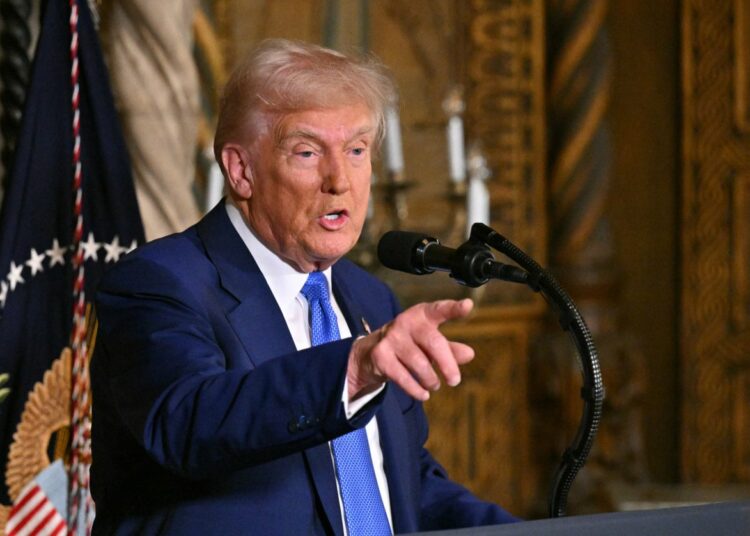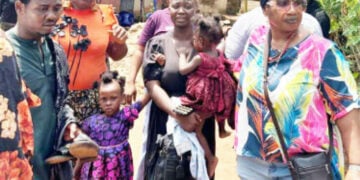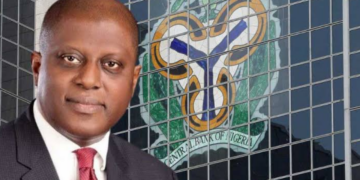The President of the United States, Donald Trump, recently redesignated Nigeria as a ‘Country of Particular Concern’ (CPC), citing what he described as “an existential threat” facing Christians in the country.
In a post shared Friday on his Truth Social account, the US president said his decision was driven by reports of widespread killings of Christians allegedly perpetrated by extremist groups and violent militias across Nigeria.
“Christianity is facing an existential threat in Nigeria,” Trump wrote. “Thousands of Christians are being killed. Radical Islamists are responsible for this mass slaughter.
“I am hereby making Nigeria a ‘COUNTRY OF PARTICULAR CONCERN’ — but that is the least of it.
“When Christians, or any such group, are slaughtered like is happening in Nigeria (3,100 versus 4,476 worldwide), something must be done!”
Trump called on Congressman Riley Moore, Chairman Tom Cole, and the House Appropriations Committee to investigate the situation and provide recommendations to him.
“The United States cannot stand by while such atrocities are happening in Nigeria and numerous other countries,” he added. “We stand ready, willing, and able to save our great Christian population around the world!”
A Deep-Rooted Security Crisis:
Nigeria’s security challenges are not new. They date back decades, particularly with the rise of the Boko Haram insurgency in the country’s North-East. Founded in the late 1990s as a radical Islamic movement, Boko Haram became violently active after a failed uprising in 2009 under its founder, Muhammad Yusuf. Following his death in police custody, Abubakar Shekau assumed leadership and launched a campaign of terror targeting civilians, churches, mosques, and government institutions.
Under Shekau, the group carried out major attacks such as the 2011 bombing of the United Nations headquarters in Abuja, in which more than 20 people were killed and a series of deadly church bombings on Christmas Day the same year, including at St. Theresa’s Catholic Church in Madalla, Niger State.
In 2015, Boko Haram fractured after Shekau pledged allegiance to ISIS, leading to the emergence of the Islamic State West Africa Province (ISWAP) led by Abu Musab al-Barnawi. The split created two deadly factions, Shekau-led Boko Haram and ISWAP, each responsible for numerous massacres and abductions across Nigeria and the Lake Chad region.
Over the years, their activities have been compounded by armed banditry and communal clashes involving Fulani herders and farming communities, particularly in the Middle Belt states. The competition for grazing lands and water sources has often turned violent, leaving thousands displaced and hundreds dead.
Recurring Attacks on Churches and Mosques:
While global narratives often emphasise attacks on Christian communities, both Muslim and Christian worship centres have been targets of extremist violence in Nigeria. Militants have bombed mosques where clerics opposed their ideology and attacked churches during services in attempts to sow fear and division.
Some of the most notorious attacks over the years include: August 11, 2013 – Konduga, Borno State: Boko Haram gunmen massacred 44 worshippers during Fajr prayers at the Central Mosque.
November 28, 2014 – Kano Central Mosque: Coordinated bombings and gunfire during Friday prayers killed over 100 people.
December 25, 2011 – Madalla, Niger State: A bombing at St. Theresa’s Catholic Church killed about 35 people on Christmas Day.
July 17, 2015 – Damaturu, Yobe State: Suicide bombers, including a 10-year-old girl, killed up to 50 during Eid al-Fitr prayers.
November 21, 2017 – Mubi, Adamawa State: A teenage suicide bomber killed 50 in the Madina Mosque.
June 5, 2022 – Owo, Ondo State: Gunmen and bombers attacked St. Francis Catholic Church, killing about 40 worshippers.
October 25, 2021 – Mazakuka, Niger State: Bandits killed 18 worshippers and an imam during dawn prayers.
August 19, 2025 – Unguwan Mantau, Katsina State: At least 27 worshippers were killed during early morning prayers.
In 2022, a report by Agora Policy indicated that ISWAP, a splinter group of Boko Haram, has been responsible for roughly 1,480 attacks in Nigeria, leading to an estimated 15,111 deaths.
In a related finding, the Africa Centre for Strategic Studies in 2024 reported that ISWAP-linked violence accounted for about 3,627 deaths in that year alone.
Meanwhile, data from the Armed Conflict Location and Event Data Project (ACLED) in a 2022 report revealed that the overall pattern of political violence in Nigeria shows that Christians were neither the primary nor the most frequent targets.
The report acknowledged that while incidents of anti-Christian violence do occur, they represent only a fraction of the country’s broader security crisis.
A Crisis Affecting All Faiths:
While Trump’s comments reignite global debate over alleged religious persecution in Nigeria, Human rights lawyer Ayo Obe warned against viewing the crisis solely through a religious lens.
Similarly, Audu Bulama Bukarti of the Tony Blair Institute observed that, “Nigeria’s violence is driven by weak governance, poverty, and local grievances. It is not a single war against Christianity but a network of overlapping conflicts.”
Human rights organisations, including the Christian Association of Nigeria (CAN), led by Archbishop Daniel Okoh, continued to urge both the Nigerian government and the international community to strengthen counterterrorism coordination, rebuild destroyed communities, and ensure justice for victims regardless of religious affiliation.
Nigeria remains on the United States’ radar for its deteriorating human rights and security situation.
Whether Trump’s redesignation will lead to tangible diplomatic or policy actions, however, remains to be seen.





